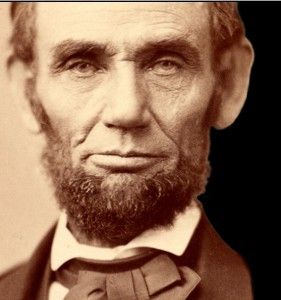 In the face of a bloody Civil War without visible end, Americans and Confederates at large are consumed with thoughts of Providence. From the earliest days of colonization, America has been a nation steeped in providential thought and language. The first Europeans to set foot in the new world were convinced that God’s hand was upon the land and their errand into the wilderness, and a sense of divine destiny accompanied the growth, expansion and eventual independence of the new nation.
In the face of a bloody Civil War without visible end, Americans and Confederates at large are consumed with thoughts of Providence. From the earliest days of colonization, America has been a nation steeped in providential thought and language. The first Europeans to set foot in the new world were convinced that God’s hand was upon the land and their errand into the wilderness, and a sense of divine destiny accompanied the growth, expansion and eventual independence of the new nation.
Calvinism, the theological guardian of the formal doctrine of Providence, has long pulsed through the veins of many American Christians of various denominations. Abraham Lincoln drank from this well in his Calvinist Baptist upbringing, and the terrible war pitting brother against brother has returned his thoughts to questions of God’s sovereignty in the affairs of humanity. Today he jots down his musings on Providence and the war, reflections that grapple with Providence in a manner more personal and mysterious than do many Americans:
The will of God prevails. In great contests each party claims to act in accordance with the will of God. Both may be, and one must be, wrong. God cannot be for and against the same thing at the same time. In the present civil war it is quite possible that God’s purpose is something different from the purpose of either party; and yet the human instrumentalities, working just as they do, are of the best adaptation to effect his purpose. I am almost ready to say that this is probably true; that God wills this contest, and wills that it shall not end yet. By his mere great power on the minds of the now contestants, he could have either saved or destroyed the Union without a human contest. Yet the contest began. And, having begun, he could give the final victory to either side any day. Yet the contest proceeds.
Well on his way toward advocating for full-fledged emancipation for African slaves, Lincoln in his theological uncertainly envisions an unclear relationship between a heavenly God and earthly humans. Personally convinced that slavery is a sin, the president acknowledges that he does not know the mind of God on this matter. At a time when so many North and South proclaim with clarity the will of God, few men of lesser stature than Lincoln are so willing to admit the mysteries of God’s ways.
Sources: Lincoln’s “Meditation on the Divine Will” is an undated document. Historians typically date the document either September 30, 1862, or September 2, 1862. (link)


